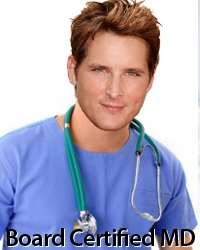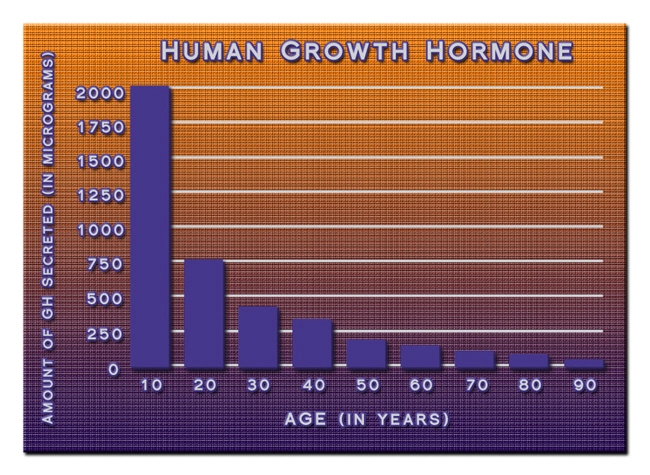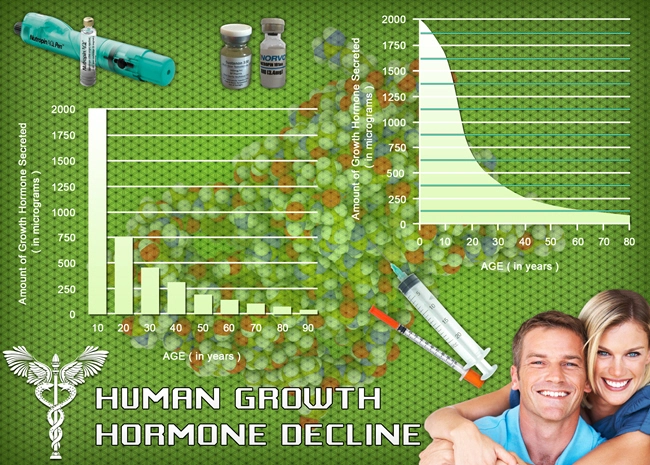
Introduction
Eating disorders, traditionally associated with female demographics, have increasingly been recognized as a significant issue among American males, particularly within the bodybuilding community. This article delves into the prevalence of eating disorders among male bodybuilders, exploring both the psychological underpinnings and nutritional aspects that contribute to this growing concern. By understanding the multifaceted nature of these disorders, we can better address the needs of this population and foster healthier practices within the bodybuilding culture.
Prevalence of Eating Disorders in Male Bodybuilders
The prevalence of eating disorders among male bodybuilders is alarmingly high, with studies indicating that up to 33% of male bodybuilders may suffer from some form of disordered eating. This statistic is particularly concerning given the cultural emphasis on physical appearance and muscularity within the bodybuilding community. Conditions such as anorexia nervosa, bulimia nervosa, and muscle dysmorphia are increasingly common, driven by the relentless pursuit of an idealized body image.
Psychological Factors Contributing to Eating Disorders
The psychological landscape of male bodybuilders is complex, often characterized by body dissatisfaction and a distorted self-perception. Muscle dysmorphia, colloquially known as "bigorexia," is a prevalent disorder where individuals perceive themselves as insufficiently muscular despite being well-developed. This condition is fueled by societal pressures and the constant comparison to idealized images in media and bodybuilding competitions. Additionally, the competitive nature of bodybuilding can exacerbate feelings of inadequacy and drive individuals towards extreme behaviors to achieve their goals.
Nutritional Practices and Their Impact
Nutritional practices within the bodybuilding community can significantly contribute to the development of eating disorders. The emphasis on strict dieting, often involving severe caloric restriction and macronutrient manipulation, can lead to disordered eating patterns. Bodybuilders may engage in cycles of bulking and cutting, which involve consuming large amounts of calories to gain muscle mass followed by drastic reductions to lose fat. These cycles can disrupt normal eating behaviors and lead to an unhealthy relationship with food.
The Role of Supplements and Performance-Enhancing Drugs
The use of supplements and performance-enhancing drugs is widespread in the bodybuilding community and can further complicate the issue of eating disorders. Anabolic steroids, protein powders, and other supplements are often used to enhance muscle growth and performance. However, the reliance on these substances can lead to a dependency and further distort body image and eating behaviors. The pressure to use these substances can also contribute to psychological distress and exacerbate existing eating disorders.
Intervention and Treatment Strategies
Addressing eating disorders in male bodybuilders requires a multifaceted approach that encompasses both psychological and nutritional interventions. Cognitive-behavioral therapy (CBT) has been shown to be effective in treating body image issues and disordered eating. Nutritional counseling can help individuals develop healthier eating habits and understand the importance of balanced nutrition for overall health and performance. Additionally, education about the risks of supplements and performance-enhancing drugs is crucial in preventing the escalation of eating disorders.
Conclusion
The prevalence of eating disorders among American male bodybuilders is a pressing public health issue that demands attention and action. By understanding the psychological and nutritional factors that contribute to these disorders, we can develop targeted interventions that support the well-being of this population. Encouraging a culture of health and balance within the bodybuilding community is essential in combating the rise of eating disorders and promoting a sustainable approach to fitness and nutrition.
Contact Us Today For A Free Consultation
Dear Patient,
Once you have completing the above contact form, for security purposes and confirmation, please confirm your information by calling us.
Please call now: 1-800-380-5339.
Welcoming You To Our Clinic, Professor Tom Henderson.

- Unveiling the Synergy Between Body Building and Diabetes Control in American Males [Last Updated On: February 27th, 2025] [Originally Added On: February 27th, 2025]
- The Therapeutic Impact of Bodybuilding on Mental Health [Last Updated On: March 2nd, 2025] [Originally Added On: March 2nd, 2025]
- Enhancing Bodybuilding Performance and Injury Prevention: The Integral Role of Physical Therapy [Last Updated On: March 3rd, 2025] [Originally Added On: March 3rd, 2025]
- Optimizing Nutrition for Successful Bodybuilding: A Comprehensive Guide [Last Updated On: March 4th, 2025] [Originally Added On: March 4th, 2025]
- Body Building: A Strategic Approach to Combat Obesity and Metabolic Syndrome in American Males [Last Updated On: March 4th, 2025] [Originally Added On: March 4th, 2025]
- Bodybuilding: Impact on Health and Body Composition in American Males [Last Updated On: March 5th, 2025] [Originally Added On: March 5th, 2025]
- Exploring the Cardiovascular Benefits of Bodybuilding for American Men [Last Updated On: March 6th, 2025] [Originally Added On: March 6th, 2025]
- Optimizing Orthopedic Health in Bodybuilding: Strategies to Prevent Injuries and Enhance Performance [Last Updated On: March 7th, 2025] [Originally Added On: March 7th, 2025]
- Unveiling the Nexus of Longevity and Body Building: Insights from Geriatric Medicine [Last Updated On: March 7th, 2025] [Originally Added On: March 7th, 2025]
- The Dark Side of Bodybuilding: Risks and Consequences of Anabolic Steroid Use [Last Updated On: March 8th, 2025] [Originally Added On: March 8th, 2025]
- The Endocrinological Blueprint of Bodybuilding: Hormones, Risks, and Strategies for American Males [Last Updated On: March 9th, 2025] [Originally Added On: March 9th, 2025]
- Bodybuilding Boosts Mental Health: Self-Esteem, Stress Relief, and Social Bonds for American Men [Last Updated On: March 12th, 2025] [Originally Added On: March 12th, 2025]
- The Impact of Bodybuilding on Sleep: A Comprehensive Analysis for American Males [Last Updated On: March 13th, 2025] [Originally Added On: March 13th, 2025]
- Unleashing the Power of Body Building: A Therapeutic Approach to Managing Chronic Pain in American Males [Last Updated On: March 15th, 2025] [Originally Added On: March 15th, 2025]
- Bodybuilding: A Potent Strategy for Hypertension Management in American Males [Last Updated On: March 17th, 2025] [Originally Added On: March 17th, 2025]
- Injury Prevention Strategies for American Male Bodybuilders: Expert Physiotherapy Insights [Last Updated On: March 17th, 2025] [Originally Added On: March 17th, 2025]
- Body Building Myths and Facts for American Males: A Holistic Approach [Last Updated On: March 18th, 2025] [Originally Added On: March 18th, 2025]
- Integrating Bodybuilding into Post-Surgical Rehabilitation for American Males: A Physician's Guide [Last Updated On: March 19th, 2025] [Originally Added On: March 19th, 2025]
- Bodybuilding as a Therapeutic Strategy for Osteoporosis in American Men [Last Updated On: March 19th, 2025] [Originally Added On: March 19th, 2025]
- Competitive Bodybuilding: Health Risks and Mitigation Strategies for American Males [Last Updated On: March 20th, 2025] [Originally Added On: March 20th, 2025]
- Bodybuilding's Impact on Endocrine System: Hormones, Health Risks, and Management Strategies [Last Updated On: March 20th, 2025] [Originally Added On: March 20th, 2025]
- Body Building: A Therapeutic Approach to Managing Stress and Anxiety in American Males [Last Updated On: March 21st, 2025] [Originally Added On: March 21st, 2025]
- Debunking Menstrual Cycle Myths: Optimizing Women's Bodybuilding Training [Last Updated On: March 22nd, 2025] [Originally Added On: March 22nd, 2025]
- Bodybuilding Boosts Immunity: A Comprehensive Guide for American Males [Last Updated On: March 22nd, 2025] [Originally Added On: March 22nd, 2025]
- Bodybuilding's Role in Enhancing Addiction Recovery for American Males [Last Updated On: March 22nd, 2025] [Originally Added On: March 22nd, 2025]
- Asthma and Bodybuilding: Safety, Benefits, and Program Tailoring for American Males [Last Updated On: March 22nd, 2025] [Originally Added On: March 22nd, 2025]
- Managing Lifestyle Diseases in Bodybuilding: Strategies for American Males [Last Updated On: March 22nd, 2025] [Originally Added On: March 22nd, 2025]
- Bodybuilding's Role in Enhancing Holistic Health for American Males [Last Updated On: March 22nd, 2025] [Originally Added On: March 22nd, 2025]
- Bodybuilding Strategies for American Males to Combat Age-Related Muscle Loss [Last Updated On: March 22nd, 2025] [Originally Added On: March 22nd, 2025]
- Bodybuilding and Heart Health: Risks and Cardiologist's Mitigation Strategies [Last Updated On: March 22nd, 2025] [Originally Added On: March 22nd, 2025]
- Bodybuilding's Impact on Prostate Health: Hormones, Supplements, and Prevention Strategies [Last Updated On: March 23rd, 2025] [Originally Added On: March 23rd, 2025]
- Bodybuilding in Young Males: Benefits, Risks, and Safe Practices [Last Updated On: March 23rd, 2025] [Originally Added On: March 23rd, 2025]
- Essential Vitamins and Supplements for American Male Bodybuilders: Enhancing Muscle Growth and Performance [Last Updated On: March 23rd, 2025] [Originally Added On: March 23rd, 2025]
- Kidney Health in Bodybuilding: Safe Practices for American Males [Last Updated On: March 23rd, 2025] [Originally Added On: March 23rd, 2025]
- Orthostatic Hypotension in Bodybuilding: Risks, Symptoms, and Management Strategies for American Males [Last Updated On: March 23rd, 2025] [Originally Added On: March 23rd, 2025]
- Body Building: A Non-Pharmacological Approach to Managing Parkinson's in American Males [Last Updated On: March 23rd, 2025] [Originally Added On: March 23rd, 2025]
- Rheumatoid Arthritis Management: Body Building Benefits for American Males [Last Updated On: March 24th, 2025] [Originally Added On: March 24th, 2025]
- Bodybuilding as a Natural Strategy for Arthritis Management in American Men [Last Updated On: March 24th, 2025] [Originally Added On: March 24th, 2025]
- Liquid Diets in Bodybuilding: Risks, Benefits, and Sustainable Alternatives [Last Updated On: March 24th, 2025] [Originally Added On: March 24th, 2025]
- Bodybuilding Boosts Postnatal Recovery for New American Fathers: Physical and Psychological Benefits [Last Updated On: March 24th, 2025] [Originally Added On: March 24th, 2025]
- Bodybuilding Benefits for American Males with COPD: Strength, Respiratory Health, and Well-being [Last Updated On: March 24th, 2025] [Originally Added On: March 24th, 2025]
- Bodybuilding: A Comprehensive Anti-Aging Strategy for American Men [Last Updated On: March 24th, 2025] [Originally Added On: March 24th, 2025]
- Bodybuilding Enhances Gut Health in American Males: Clinical Insights and Benefits [Last Updated On: March 24th, 2025] [Originally Added On: March 24th, 2025]
- Bodybuilding's Psychological Impact on American Teenage Males: Benefits and Risks [Last Updated On: March 25th, 2025] [Originally Added On: March 25th, 2025]
- Bodybuilding Enhances Strength Recovery in American Males Post-Chemotherapy [Last Updated On: March 25th, 2025] [Originally Added On: March 25th, 2025]
- Body Building Enhances Lung Function in American Males: A Respiratory Therapist's Insight [Last Updated On: March 25th, 2025] [Originally Added On: March 25th, 2025]
- Bodybuilding Reduces Colon Cancer Risk in American Males: Diet, Hormones, and Fitness [Last Updated On: March 25th, 2025] [Originally Added On: March 25th, 2025]
- Bodybuilding's Impact on Metabolism: Diet, Training, and Hormonal Effects [Last Updated On: March 25th, 2025] [Originally Added On: March 25th, 2025]
- Essential Safety Guidelines for American Male Bodybuilders [Last Updated On: March 26th, 2025] [Originally Added On: March 26th, 2025]
- Bodybuilding Boosts Immune Health: Optimal Practices for American Males [Last Updated On: March 26th, 2025] [Originally Added On: March 26th, 2025]
- Male Menopause and Body Building: Strategies for Muscle Growth and Health [Last Updated On: March 26th, 2025] [Originally Added On: March 26th, 2025]
- Sickle Cell Disease and Body Building: Benefits, Risks, and Guidelines for American Males [Last Updated On: March 26th, 2025] [Originally Added On: March 26th, 2025]
- Body Building and Heart Health: Benefits and Risks for American Males [Last Updated On: March 26th, 2025] [Originally Added On: March 26th, 2025]
- Bodybuilding: Building Mental Resilience and Fortitude in American Men [Last Updated On: March 26th, 2025] [Originally Added On: March 26th, 2025]
- Bodybuilding Boosts Brain Health: A Holistic Approach for American Males [Last Updated On: March 27th, 2025] [Originally Added On: March 27th, 2025]
- Body Building and Dementia Risk: Insights for American Males [Last Updated On: March 27th, 2025] [Originally Added On: March 27th, 2025]
- Bodybuilding: A Holistic Approach for American Males with Chronic Degenerative Diseases [Last Updated On: March 27th, 2025] [Originally Added On: March 27th, 2025]
- Genetics in Bodybuilding: Optimizing Muscle Growth and Recovery for American Males [Last Updated On: March 27th, 2025] [Originally Added On: March 27th, 2025]
- Bodybuilding: A Preventive Strategy for Musculoskeletal Health in American Males [Last Updated On: March 27th, 2025] [Originally Added On: March 27th, 2025]
- Hydration Strategies for American Male Bodybuilders: Enhancing Performance and Health [Last Updated On: March 28th, 2025] [Originally Added On: March 28th, 2025]
- Bodybuilding Enhances Bone Density in American Males: Training and Nutrition Insights [Last Updated On: March 28th, 2025] [Originally Added On: March 28th, 2025]
- Injury Prevention and Management Strategies for American Male Bodybuilders [Last Updated On: March 29th, 2025] [Originally Added On: March 29th, 2025]
- Bodybuilding as Adjunct Therapy for Mood Disorders in American Males [Last Updated On: March 29th, 2025] [Originally Added On: March 29th, 2025]
- Bodybuilding as a Therapeutic Tool for PTSD in American Males: Benefits and Implementation [Last Updated On: March 29th, 2025] [Originally Added On: March 29th, 2025]
- Bodybuilding's Impact on Life Expectancy: Benefits, Risks, and Balance for American Males [Last Updated On: March 31st, 2025] [Originally Added On: March 31st, 2025]
- Bodybuilding's Impact on Metabolism and Health in American Males [Last Updated On: April 1st, 2025] [Originally Added On: April 1st, 2025]
- Medically Supervised Bodybuilding: A Safe Path to Fitness for American Males [Last Updated On: April 1st, 2025] [Originally Added On: April 1st, 2025]
- Bodybuilding Enhances Cardiovascular Health in American Males: A Comprehensive Guide [Last Updated On: April 2nd, 2025] [Originally Added On: April 2nd, 2025]
- Bodybuilding's Impact on Hormones: Testosterone, Cortisol, and Growth Hormone Fluctuations [Last Updated On: April 5th, 2025] [Originally Added On: April 5th, 2025]
- Gut Health's Crucial Role in Bodybuilding for American Males [Last Updated On: April 5th, 2025] [Originally Added On: April 5th, 2025]
- Bodybuilding Enhances Recovery and Well-being Post Joint Replacement Surgery [Last Updated On: April 5th, 2025] [Originally Added On: April 5th, 2025]
- Stretching Essentials for American Male Bodybuilders: Enhancing Performance and Health [Last Updated On: April 6th, 2025] [Originally Added On: April 6th, 2025]
- Bodybuilding as Effective Stress Management for American Males: Clinical Insights [Last Updated On: April 7th, 2025] [Originally Added On: April 7th, 2025]
- Enhancing Bodybuilding with Flexibility: Benefits and Strategies for American Males [Last Updated On: April 7th, 2025] [Originally Added On: April 7th, 2025]
- Bodybuilding as a Therapeutic Approach to Managing Sciatica in American Males [Last Updated On: April 9th, 2025] [Originally Added On: April 9th, 2025]
- Structured Body Building: A Preventive Strategy for Low Back Pain in American Males [Last Updated On: April 9th, 2025] [Originally Added On: April 9th, 2025]
- Bodybuilding: A Holistic Approach to Managing ADHD in American Men [Last Updated On: April 10th, 2025] [Originally Added On: April 10th, 2025]
- Bodybuilding and Back Pain: Chiropractic Strategies for Prevention and Management [Last Updated On: April 10th, 2025] [Originally Added On: April 10th, 2025]
- Optimizing Protein Intake for Vegetarian Bodybuilding in American Males [Last Updated On: April 12th, 2025] [Originally Added On: April 12th, 2025]
- Bodybuilding Safely During Partner's Pregnancy: Guidelines for Expectant Fathers [Last Updated On: April 12th, 2025] [Originally Added On: April 12th, 2025]








